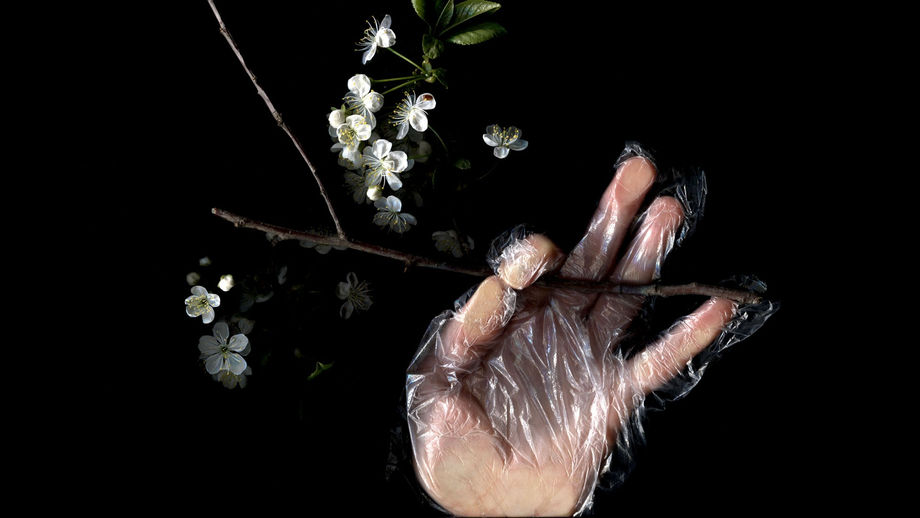The Immaterial Destroys the Material
Victoria Lomasko
Contactless Deliveries delivers me the voices of creatures from other dimensions. I don’t know if I will ever visit these other worlds, but I am writing my chapter in this book about how we can’t breathe because the gods of stability have left us, and now we are doing our own accounting for our days. But the days are all so formless – just try counting them — some stretch out like old stockings, others flash by like sun spots.
In response to your gorgeous hyacinths and magnolias, I send you cherry and chokecherry from my Moscow courtyard.
Only I see them in a strange way - each petal looks magnified behind glass.
Impressions bear down on my mind with furious force. Or maybe this is their normal force — last century, I was like a cheap radio that just about catches the signal but gives off interference. Letter after letter after letter collects in my inbox: “Would you be interested to reflect on these strange days in comics, illustrations, essays, in our online projects?”
I step out into my courtyard and feel the presence of the immaterial. There’s something invisible here capable of destroying everything around us and recreating it anew. The evening brings long shadows and I keep waiting for when they willreach the buildings — the buildings will fall.
Everything has lost its protective cover and now appears how it really is: extremely fragile. It’s painful to see this. We have to hurry up and weave new covers – perhaps through our endless chats on social media.
“One of the most prominent coronavirus-deniers has died in the U.S. after actively seeking to prove that it was all nonsense, nothing but the flu, state-fabricated hysteria.”
“Yesterday, during another international Zoom conference, I caught myself thinking that I can’t stand looking at my kitchen wallpaper in the background anymore, what was I thinking ten years ago when I picked it out?”
“I did it. I made banana bread. I put walnuts and dried cranberries in it and, friends, it is good.”
“Stop waiting for it to end and start living like this is your life now.”
If we, as experts, describe our apocalypse, we will regain control of our lives.
Everything is naked now - the people under hospital sheets in the ICUs, the houses in the courtyard, all circumstances and relationships. Some are locked in the void alone with themselves. Through the courtyard windows, you can hear the yelling of those who are locked in with others.
I want new shows, art fairs, and competitions - these are extremely powerful distractions from the reflection in the mirror. I was promised a life of running between flights and scrolling on my phone at an airline gate. But all of these sweet promises have been zeroed out, like Putin’s previous presidential terms.
Now my gate is this courtyard on the outskirts of Moscow. I am standing and watching the immaterial destroy my reality, which has proven to be untenable, in order to produce something new.
It smells like sticky leaves. Which means that I’m still fine.
-
Victoria Lomasko holds a degree in graphic art and book design from Moscow State University of Printing Arts. Her book Other Russias, a collection of graphic reportages on social themes, was published in the US by n+1 and in the UK by Penguin. Drawing on Russian traditions of documentary graphic art, Lomasko explores contemporary Russian society, witnessing the country's diverse subcultures, such as Russian Orthodox believers, LGBT activists, migrant workers, sex workers, and collective farm workers in the provinces. Her work has appeared in Art in America, The Guardian, GQ Russia and The New Yorker and in exhibitions globally, including at Kunsthalle Wien, Vienna, Austria; Garage Museum, Moscow, Russia; GRAD at Somerset House, London, UK and the Cartoonmuseum, Basel, Switzerland.


